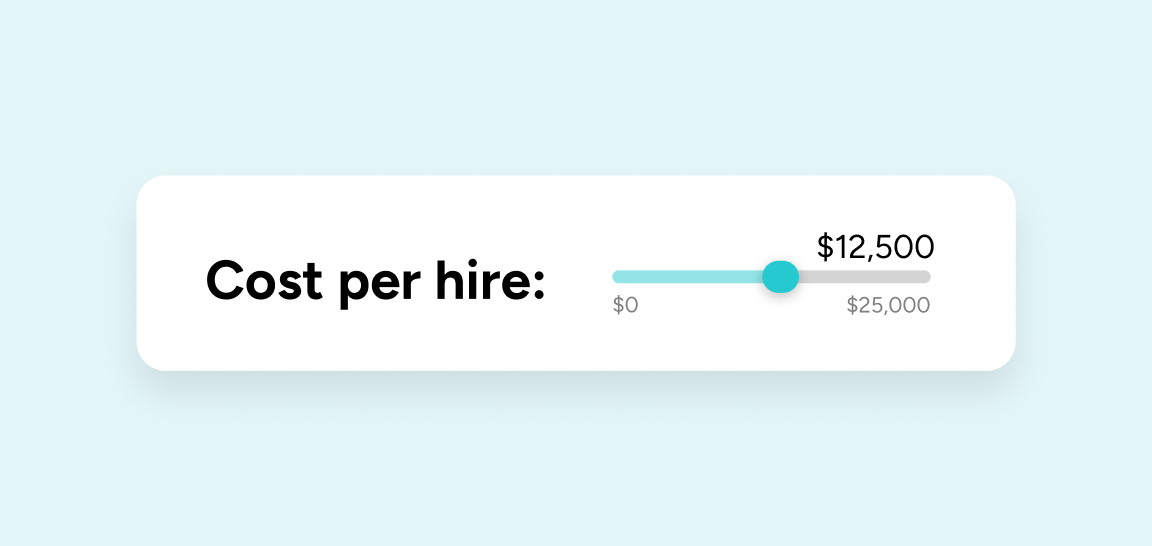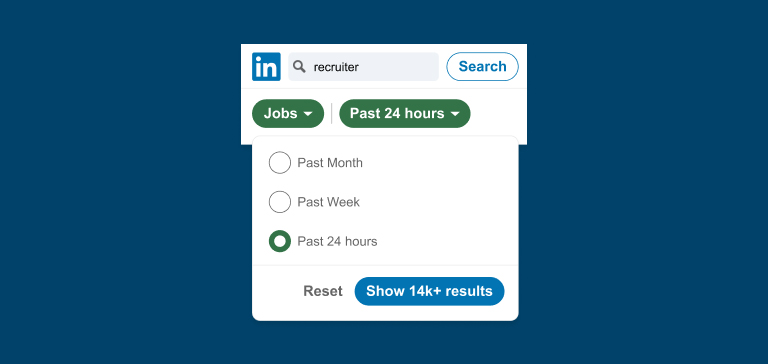The economic picture is uncertain, but despite the recent tech layoffs, we’re still in a historically tight labor market. Today, the United States has over 10 million job openings and unemployment is at 3.7% (around its lowest since the 1960’s).
Only 6 million Americans are unemployed and we have 10 million vacant jobs. The math just doesn’t add up. For a wide range of reasons like early retirement, lack of access to childcare, or even some depending on savings; the talent pool is shrinking and causing stress on recruiters that need to fill roles quickly.
Recruiters from Augusta to Austin are struggling to hire in a market with 40% less workers than jobs. Recruiters are facing the hardest hiring challenge in generations. You didn’t go into recruiting because it was easy, either. Recruiters like a good challenge, and they’re great at solving problems. That being said, we think we can help. Here are three things you can do to hire better right now.
Meet candidates where they are.
It starts with meeting candidates where they are: their cell phones. Whether you’re hiring a waiter, nurse, or engineer — people thrive in mobile-first environments. Most job seekers start their search on mobile devices. When thinking about making your hiring process mobile, here are a couple questions to ask yourself:
- How does your career site perform on a mobile device?
- Is it easy for candidates to find and apply for a job on their phone?
- How are you communicating with candidates? Are you sending them text messages?
If candidates are already searching for jobs on their phone, they don’t want to switch to a desktop. It causes friction and barriers of entry if candidates have to search through a database of job requisitions and pages of career site content to find what they’re looking for. According to Glassdoor, even just requiring candidates to create a login to apply bears a 60% drop-off rate. It should be painless for candidates to find valuable information and apply for their ideal role on mobile devices.
Imagine if you eliminate the frustration around finding jobs and information? Your open positions would stand out from the other 10 million and candidates would be more likely to apply.
Audit your job application.
When was the last time you applied for one of your own jobs? If it’s been over 6 months, stop reading this and do it right now (but then please come and read the rest). Traditional job applications are a huge source of drop-off for both high-volume and high-skilled candidates. Either they’re too long, too confusing, or too impersonal for the candidate. When reviewing your job application, ask yourself a few questions:
- Is your job search experience intuitive?
- Do candidates have to create a login to apply?
- How many questions do you ask? How do you ask those questions?
- Is the experience personalized for each candidate?
Traditional job applications require candidates to create a login (on their desktop). Imagine if you had to create a login to purchase something online. How likely are you to complete that purchase?
Imagine if you could automatically create a profile for the candidate. With no logins or signups, you’d remove a huge point of friction that everyone else has.
It’s no secret that the job application is the most painful part of the job seeker’s process. Designed in the early 2000’s, online applications are unintuitive and take way too long to complete. But it doesn’t have to be like this, 49% of candidates would consider applying for a role instantly if the process appeared simple. What if candidates could apply for jobs through quick, easy text to apply conversations? Well according to Aptitude Research, chat-based applications convert 9x higher than traditional applications.
Add speed and transparency to the process.
Speed and transparency are crucial to developing meaningful relationships with candidates. Once candidates are engaged on their mobile device and have applied in a simple, easy text-to-apply conversation, how do you make sure you retain and convert these candidates into a hire? Here are some things to consider when adding speed and transparency to your process:
- How long does it take to hire someone for a role?
- Do you remind candidates of upcoming interviews or action items to complete?
- If a candidate isn’t the right fit for a role, do you let them know?
- Do you try matching silver medalists to other roles?
Speed and transparency are crucial. Candidates are more likely to apply if they find their preferred position quickly. They’re less likely to drop out of the process if the application process is short and intentional. And if you answer their questions instantly and keep them updated throughout the process, they’ll never be left waiting for valuable information.
This is all fine and well, but you might be thinking “This guy is crazy — I have a ton of candidates. My team would have to work 24/7 to deliver this type of recruiting experience, especially in a tight labor market.” The good news is, you don’t have to work 24/7 to make this happen.
Recruiting teams around the world are leveraging Paradox’s hiring platform to automate mobile-first, lightning fast candidate experiences. Paradox’s conversational AI assistant (we call her Olivia) is helping candidates find and apply for jobs, while automating screening, scheduling, and onboarding for hiring teams.
By engaging candidates on mobile, eliminating application friction, and adding speed and transparency to their process — global leaders like General Motors and 7-Eleven have thrived in a hiring environment described as the hardest in generations.
Yes, you didn't get into recruiting because it was easy. But that doesn't mean that everything needs to be hard, either. Especially right now.
A conversational assistant can help this historically tight labor market feel a little less so.









